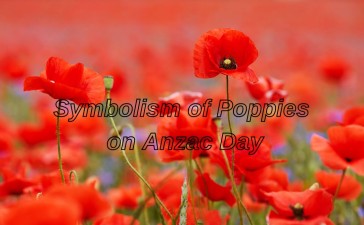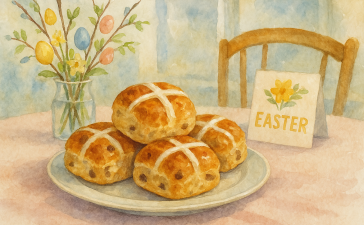Celebrating Father’s Day: A Global Perspective
Father’s Day is a cherished occasion celebrated worldwide, honoring fathers and father figures for their invaluable role in our lives. While the sentiment remains consistent across cultures, the date and manner of celebration vary, creating a rich tapestry of traditions and customs.
In Australia, Father’s Day falls on the first Sunday of September, a departure from the June celebrations observed in many other countries. This unique timing stems from Australia’s position in the Southern Hemisphere, where September marks the beginning of spring. The pleasant weather during this time of year provides an ideal backdrop for outdoor activities and family gatherings.
The origins of Father’s Day can be traced back to the early 20th century in the United States. Inspired by Mother’s Day, Sonora Smart Dodd of Spokane, Washington, championed the idea of a day to honor fathers. Her efforts led to the first Father’s Day celebration in 1910, and by 1972, it became a permanent national holiday in the US.
The purpose of Father’s Day extends beyond mere gift-giving. It’s a day to express gratitude, strengthen family bonds, and acknowledge the crucial role fathers play in shaping our lives. It provides an opportunity to reflect on the lessons, love, and support that fathers and father figures provide, often without fanfare.
Typical Father’s Day celebrations often revolve around family-oriented activities. In Australia, many families take advantage of the spring weather to enjoy barbecues, picnics, or sporting events. Other common practices include preparing special meals at home, dining out at dad’s favorite restaurant, or engaging in shared hobbies.
While there isn’t a universally recognized Father’s Day song, many countries have popular tunes that celebrate fatherhood. In Australia, “My Old Man” by John Williamson is often associated with the day. Music can play a significant role in setting the mood and expressing emotions that might be difficult to put into words.
When it comes to gift-giving, the key is thoughtfulness rather than extravagance. Popular gifts often reflect dad’s interests or needs. In Australia, outdoor gear, tech gadgets, or tickets to sporting events are common choices. Handmade gifts, especially from younger children, hold special sentimental value. The most appreciated gifts are often those that show an understanding of the father’s personality and preferences.
While traditional celebrations are wonderful, there are numerous unique ways to mark the occasion. Some families opt for adventure activities like skydiving or hot air balloon rides. Others might choose to volunteer together at a local charity, combining celebration with community service. In Australia, some families participate in fun runs or charity walks organized specifically for Father’s Day.
For first-time fathers, the day holds special significance. New dads can make the most of their first Father’s Day by starting their own traditions. This might involve a special outing, creating a time capsule, or simply taking a moment to reflect on the joys and challenges of new fatherhood. It’s also an opportunity for partners and family members to acknowledge the transition into this new role.
Father’s Day celebrations should be inclusive, recognizing that father figures come in many forms. Stepfathers, grandfathers, uncles, mentors, and other significant male role models all deserve recognition. Some families choose to honor multiple father figures, organizing group celebrations or sending thoughtful messages to acknowledge these important relationships.
The global nature of Father’s Day celebrations highlights both our differences and our shared values. In the UK and US, Father’s Day is celebrated on the third Sunday in June. Many European countries, including Spain, Portugal, and Italy, observe it on March 19th, which is St. Joseph’s Day in the Catholic tradition. In Thailand, it’s celebrated on December 5th, the birthday of the late King Bhumibol Adulyadej, who was seen as a father figure to the nation.
These varying dates reflect cultural, historical, and sometimes practical considerations. For instance, Australia’s September date not only aligns with favorable weather but also provides a nice balance to Mother’s Day, which is celebrated in May. This spacing allows for distinct celebrations and potentially eases the financial burden on families.
Despite these differences, the core sentiment remains the same: a day to honor and appreciate fathers. The global nature of the celebration speaks to the universal importance of fatherhood across cultures. It’s a reminder of the positive impact that engaged and loving fathers can have on their children, families, and communities.
As society evolves, so too does the concept of fatherhood. Modern Father’s Day celebrations increasingly recognize diverse family structures, including single fathers, same-sex parents, and long-distance parenting situations. This inclusivity enriches the celebration, acknowledging that fatherhood is defined more by love, care, and commitment than by traditional norms.
Father’s Day also serves as a platform for discussing important issues related to fatherhood. It can spark conversations about work-life balance, parental leave policies, and the changing expectations of fathers in society. Many organizations use the day to promote initiatives supporting fathers’ involvement in childcare and family life.
For those separated by distance, technology has transformed how Father’s Day can be celebrated. Video calls, virtual gift-giving, and shared online experiences allow families to bridge the gap and create meaningful connections despite physical separation. This has become particularly relevant in recent years, with global events highlighting the importance of maintaining family bonds across distances.
In conclusion, Father’s Day, whether celebrated in September in Australia or on various dates around the world, is a testament to the enduring importance of fatherhood. It’s a day that transcends cultural boundaries, uniting people in gratitude for the fathers and father figures who shape our lives. Whether through traditional celebrations, unique adventures, or simple expressions of love, Father’s Day provides a valuable opportunity to strengthen family bonds and honor the men who guide, support, and inspire us. As we celebrate, we not only pay tribute to individual fathers but also acknowledge the profound impact of fatherhood on our families, communities, and society as a whole.





